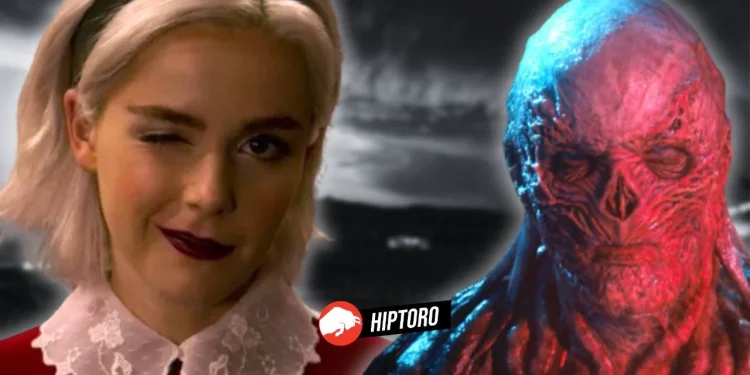In the expansive realm of television, supernatural shows have continually captured the imaginations of audiences around the globe. These series offer a departure from the mundane, whisking viewers away to worlds where the impossible becomes possible, and the paranormal is just another part of everyday life. As we step into 2024, the appetite for such thrilling narratives remains unabated, with a mix of new entrants and venerable series commanding the attention of fans old and new.
This article delves into the top 10 best supernatural shows to watch in 2024, exploring the unique allure and standout features of each. From battles against dark forces to the exploration of mystical realms, these series promise to entertain, horrify, and mesmerize in equal measure.
Here’s the Top 10 Best Supernatural Shows to Watch in 2024
1. Supernatural: A Legacy of Family, Monsters, and Sacrifice
“Supernatural,” a cornerstone of American television, has not just been a show about hunting monsters—it’s been an epic saga of family, sacrifice, and the fight between good and evil. Spanning fifteen seasons, it has woven a rich tapestry that delves into the complexities of familial bonds, the burden of destiny, and the enduring human (and non-human) struggle for redemption.
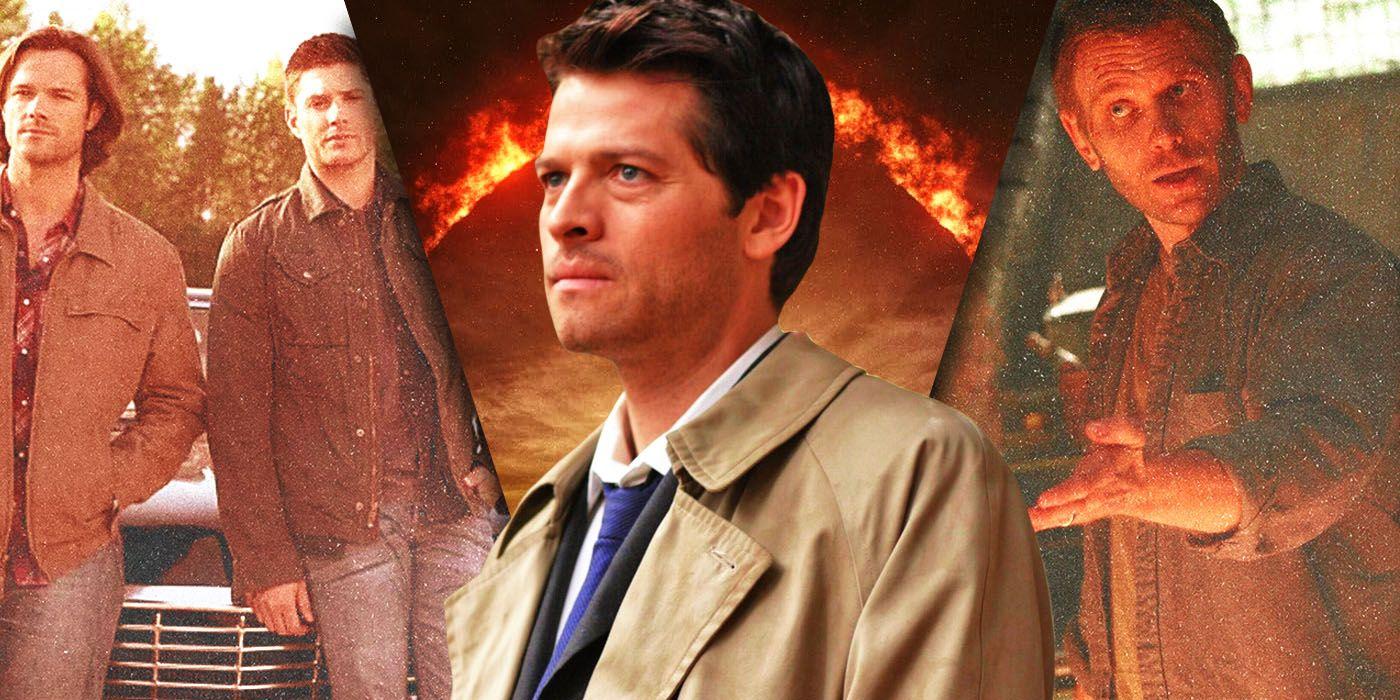
The Heart of “Supernatural”: The Winchester Family
At its core, “Supernatural” is the story of the Winchester family. Brothers Sam and Dean Winchester, portrayed with heartfelt depth by Jared Padalecki and Jensen Ackles, are raised as hunters by their father, John, following the mysterious death of their mother, Mary, at the hands of a supernatural entity. This tragedy sets them on a path fraught with danger, heartache, and fleeting moments of joy.
The brothers’ relationship is the emotional backbone of the series. Their dynamic, characterized by unconditional love, unyielding loyalty, and occasional conflict, reflects the complexities of real-life familial relationships. Over the seasons, viewers witness their sacrifices, understand their choices, and empathize with their losses, making the characters feel like family.
The Evolution of the Narrative
“Supernatural” started as a monster-of-the-week series, with Sam and Dean traveling across the country to combat various supernatural threats. However, as the series progressed, it expanded its mythology, introducing angels, demons, and a pantheon of gods, which added layers to the narrative and deepened the show’s exploration of themes like free will, faith, and the nature of evil.
The series dared to explore metaphysical questions and existential dilemmas, often through the lens of its supernatural elements. The introduction of characters like Castiel, a rebellious angel played by Misha Collins, and Crowley, a cunning demon portrayed by Mark Sheppard, brought complexity to the narrative, challenging the brothers’ black-and-white view of the supernatural world.
Conclusion
As we look back on “Supernatural” in 2024, its legacy is clear. It’s a series that has not only entertained but also inspired and comforted its audience. Through its exploration of family, sacrifice, and the supernatural, it has carved out a unique place in television history, one that will be remembered for generations to come.
“Supernatural” remains a must-watch, not just for fans of the supernatural genre but for anyone who appreciates deep, character-driven storytelling. Its journey through darkness and light, its moments of humor amidst sorrow, and its unwavering dedication to the themes of family and sacrifice make it a seminal work in the landscape of American television.
2. Stranger Things: A Tapestry of Nostalgia, Friendship, and the Supernatural
“Stranger Things” burst onto the scene in 2016, quickly becoming more than just a television show; it became a cultural touchstone. With its unique blend of 1980s nostalgia, supernatural intrigue, and heartfelt storytelling, it has captivated audiences around the world. As we delve deeper into the heart of Hawkins, Indiana, and the lives of its residents, we uncover the layers that make this series a modern classic of supernatural fiction.
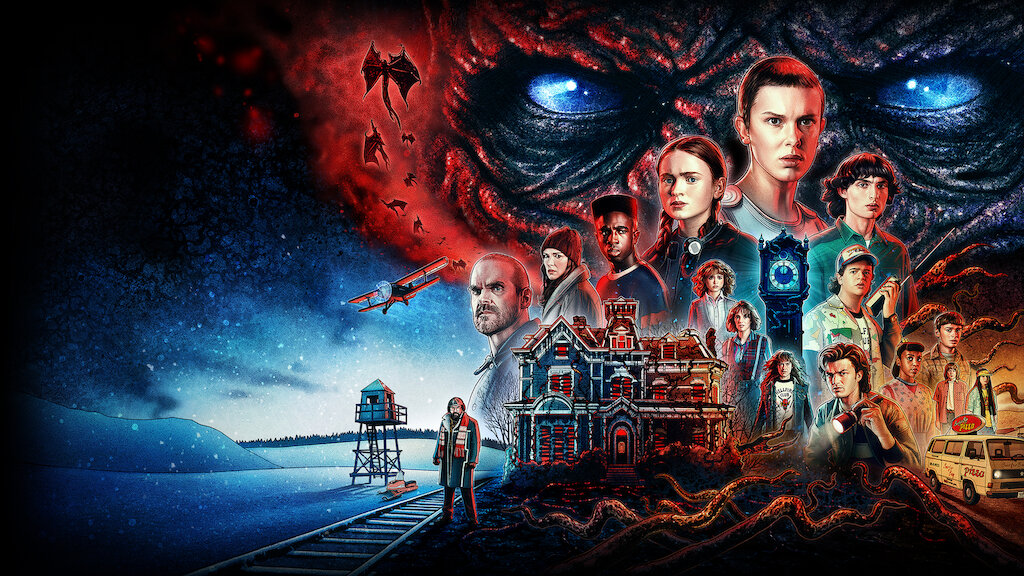
The Allure of Nostalgia and the Supernatural
At its core, “Stranger Things” is a love letter to the 1980s, expertly weaving the decade’s pop culture, fashion, and sensibilities into its narrative fabric. The series pays homage to the era’s genre films, music, and literature, creating a rich tapestry that resonates with those who lived through the period and intrigues newer generations. This backdrop sets the stage for a story that is as much about coming of age as it is about confronting the unknown.
The Strength of Character and Friendship
“Stranger Things” stands out for its character-driven storytelling. The series centers around a group of young friends—Mike, Eleven, Dustin, Lucas, and Will—each with their distinct personalities and arcs. Their journey through the trials of adolescence, coupled with their encounters with the supernatural, forms the emotional core of the show.
The character of Eleven, portrayed by Millie Bobby Brown, is particularly noteworthy. Her development from a mysterious, traumatized child into a young woman discovering her identity and power, mirrors the show’s themes of growth and self-discovery. The dynamic between the characters, marked by loyalty, bravery, and the purity of childhood friendship, offers a poignant contrast to the darkness they face.
Expanding the Mythos
As “Stranger Things” progresses, it expands its universe beyond the small town of Hawkins, introducing new characters, locations, and elements of the supernatural. This expansion enriches the series’ mythology, providing depth and complexity to the narrative. The show’s creators, the Duffer Brothers, have masterfully crafted a world that feels expansive yet intimate, where every detail contributes to the larger story.
The series also delves into themes of government conspiracy and the ethical quandaries of scientific experimentation. Through the secretive experiments conducted at Hawkins National Laboratory, “Stranger Things” explores the ramifications of unchecked ambition and the moral responsibilities of those in power. These elements add a layer of societal commentary to the show, grounding its more fantastical aspects in real-world concerns.
Cultural Impact and Legacy
“Stranger Things” has left an indelible mark on popular culture. Its influence can be seen in fashion, music, and entertainment, sparking a revival of 1980s aesthetics. The series has also been instrumental in bringing genre storytelling to a broader audience, demonstrating the universal appeal of well-crafted supernatural narratives.
3. The Vampire Diaries: A Tale of Love, Darkness, and Redemption
“The Vampire Diaries,” based on the book series by L.J. Smith, is a captivating saga that blends romance, supernatural intrigue, and the eternal struggle between good and evil. Set in the fictional town of Mystic Falls, Virginia, a place with a rich history of supernatural occurrences, the series explores the lives of its characters as they navigate the complexities of love, loyalty, and power in a world where vampires, werewolves, witches, and other supernatural beings exist.
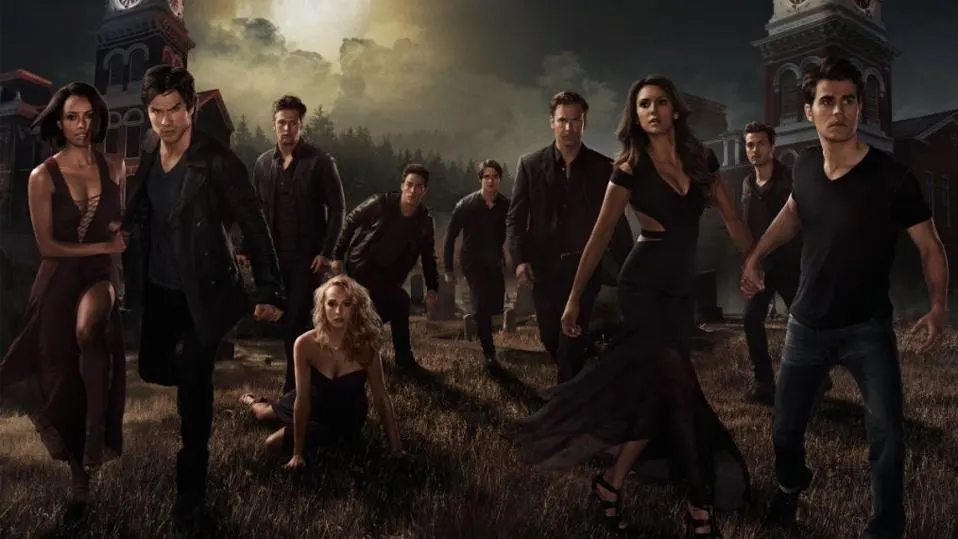
The Complexity of Love and Humanity
At the heart of “The Vampire Diaries” is the tumultuous relationship between Elena Gilbert, a compassionate and resilient young woman, and the Salvatore brothers—Stefan and Damon, two vampires with a tumultuous past and a complicated relationship with their humanity. This central love triangle serves as the driving force of the series, exploring themes of love, sacrifice, and the shades of gray that define what it means to be human.
The Salvatore brothers, on the other hand, offer a study in contrasts. Stefan, the brooding and moral vampire, struggles with his desire to live a peaceful, human life, while Damon, the charismatic and dangerous vampire, grapples with his darker impulses and the capacity for love and redemption he discovers within himself. Their complex relationship with each other and Elena is a testament to the show’s exploration of the multifaceted nature of love and redemption.
The Supernatural as a Backdrop for Human Drama
While “The Vampire Diaries” is steeped in supernatural lore, its true strength lies in its exploration of universal human themes. The series delves into issues of identity, family, and the quest for power, using the supernatural as a backdrop to explore the depths of its characters’ psyches. The presence of other supernatural entities, including witches, werewolves, and hybrids, further enriches the narrative, providing a broader context for the characters’ struggles and achievements.
Legacy and Impact
“The Vampire Diaries” has left a lasting legacy on the supernatural genre, known for its compelling characters, dramatic storytelling, and exploration of themes that resonate on a deeply human level. The series has spawned spin-offs, including “The Originals” and “Legacies,” further expanding its universe and exploring new dimensions of its rich mythology.
As “The Vampire Diaries” continues to enchant new audiences and captivate long-time fans, it stands as a poignant reminder of the power of storytelling to explore the depths of the human condition, even in the most fantastical of settings.
4. Wednesday: Embracing the Macabre with Wit and Whimsy
“Wednesday,” the latest foray into the supernaturally infused universe of the Addams Family, has quickly distinguished itself as a genre-defining series. Directed by Tim Burton and starring Jenna Ortega in the titular role, this show reimagines Wednesday Addams’ teenage years with a blend of dark humor, mystery, and a touch of the macabre. Set against the backdrop of Nevermore Academy, “Wednesday” explores themes of individuality, belonging, and the eternal dance between light and darkness.
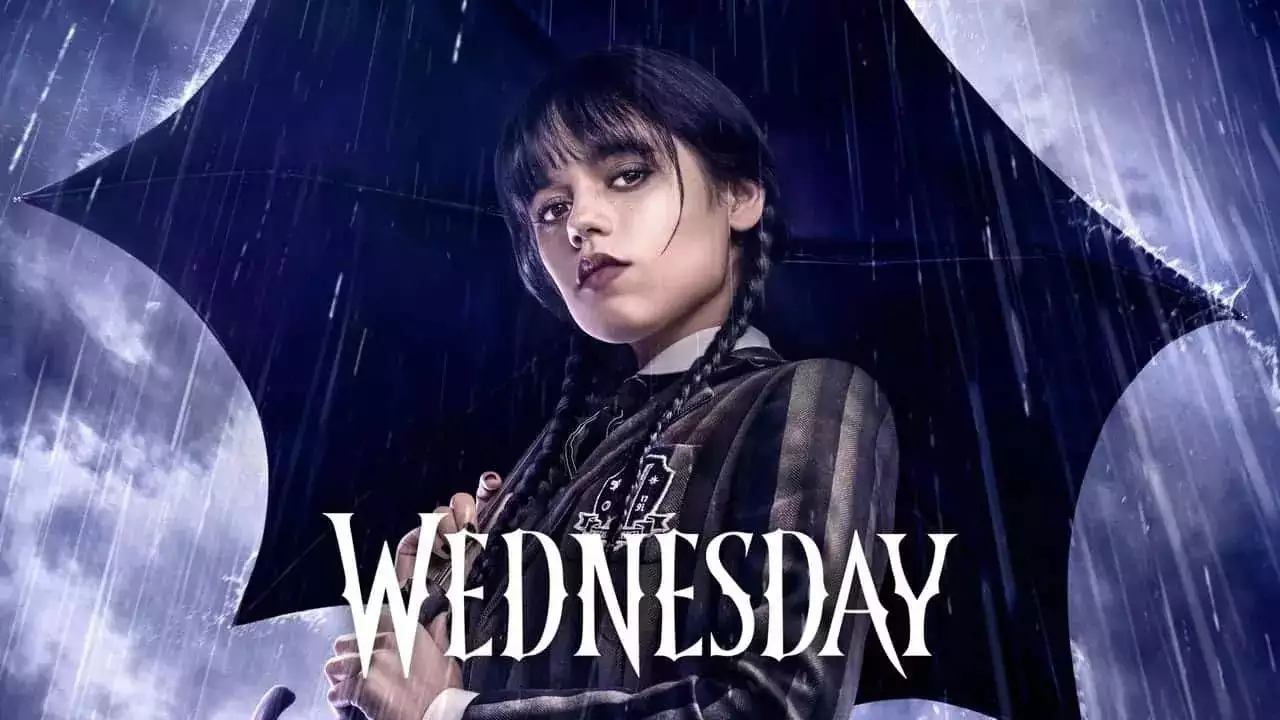
A Fresh Perspective on a Beloved Character
Wednesday Addams has long been a cultural icon, embodying the peculiar and the macabre with an unflappable demeanor and a razor-sharp wit. Jenna Ortega’s portrayal of Wednesday breathes new life into this beloved character, presenting a teenage heroine who is as intelligent and incisive as she is detached and deadpan. This series provides a deeper dive into her complexities, showcasing her growth from a solitary figure into someone who, despite her best efforts, forms meaningful connections with those around her.
Tim Burton’s Visionary Direction
Tim Burton’s involvement as a director and executive producer has left an indelible mark on “Wednesday.” His signature style—blending the gothic with the fantastical—perfectly complements the series’ tone, creating a visually stunning world that is both eerie and enchanting. Burton’s vision for the series pays homage to the original Charles Addams cartoons and previous adaptations, while also introducing a unique aesthetic that feels distinctly his own.
Burton’s influence extends beyond the visual; the thematic depth of “Wednesday” reflects his penchant for storytelling that celebrates the outsider. The series explores themes of acceptance, identity, and the power of embracing one’s true self, all hallmarks of Burton’s filmography. “Wednesday” thus serves as a conduit for these themes, resonating with audiences who find beauty in the odd and the unconventional.
A Supernatural Mystery with a Heart
At its core, “Wednesday” is a supernatural mystery, with each episode unraveling part of a larger puzzle that ties into the mysterious history of Nevermore Academy and the Addams Family legacy. The show skillfully balances its darker elements with moments of levity and heart, showcasing the growth of its characters as they navigate a world filled with both human and supernatural challenges.
The series also delves into the dynamics of the Addams Family, providing new insights into Wednesday’s relationships with her parents, Gomez and Morticia, her brother Pugsley, and the enigmatic Thing. These relationships add a layer of depth to the series, grounding the supernatural elements in the universal themes of family and love.
5. Lucifer: Redemption, Romance, and Revelations in Los Angeles
“Lucifer,” based on the DC Comics character created by Neil Gaiman, Sam Kieth, and Mike Dringenberg for the comic book series “The Sandman,” became a television phenomenon that combines crime-solving, theological inquiry, and devilish humor. Starring Tom Ellis as Lucifer Morningstar, the Devil who abandons his throne in Hell to run a nightclub in Los Angeles and consult for the LAPD, the series explores themes of redemption, identity, and the nature of good versus evil through a unique lens.

The Devil as a Sympathetic Character
At the heart of “Lucifer” is the transformation of the Devil from a figure of pure evil into a complex, charismatic, and surprisingly sympathetic character. Tom Ellis’s portrayal brings a nuanced blend of charm, vulnerability, and wit to Lucifer, making him relatable to the audience. This reimagining challenges traditional perceptions of Lucifer, presenting him as a being grappling with his desires, responsibilities, and the pursuit of personal growth.
The series delves into philosophical and moral questions, such as the nature of punishment, free will, and what it means to seek redemption. Lucifer’s journey of self-discovery is mirrored in his interactions with humans, especially with LAPD detective Chloe Decker, played by Lauren German. Their partnership and evolving relationship provide a grounded counterpoint to the celestial drama, exploring themes of love, sacrifice, and the possibility of change.
Blending Genres with Wit and Wisdom
“Lucifer” skillfully blends elements of crime procedural, supernatural drama, and comedy. Each episode sees Lucifer and Chloe solving a murder case, which often leads to broader reflections on human nature and morality. This blend of genres allows the show to tackle a wide range of topics, from the mundane to the metaphysical, all while maintaining a sharp sense of humor and a light-hearted tone.
The series also benefits from a strong supporting cast, including D.B. Woodside as the angel Amenadiel, Lesley-Ann Brandt as the demon Mazikeen, and Rachael Harris as therapist Dr. Linda Martin. These characters enrich the narrative, providing different perspectives on the issues at hand and contributing to the show’s exploration of celestial and infernal politics.
Looking Ahead
As “Lucifer” concluded its run, it left behind a legacy of challenging norms and expectations. The show’s success lies in its ability to entertain, provoke thought, and, at times, touch the heart, all while exploring the depths of its characters’ souls. Its blend of crime-solving, theological exploration, and emotional depth has set a new standard for supernatural programming, ensuring that Lucifer Morningstar’s journey from Hell to redemption will not soon be forgotten.
With its unique take on celestial lore, memorable characters, and clever writing, “Lucifer” remains a beacon for how genre television can explore complex themes while entertaining and inspiring its audience.
6. Grimm: The Intersection of Myth and Reality
“Grimm” stands out in the supernatural genre by seamlessly blending the fantastical elements of classic fairy tales and folklore with the gritty reality of a police procedural. The series, which premiered in 2011, follows Nick Burkhardt, a homicide detective in Portland, Oregon, who discovers he is a Grimm, a guardian meant to keep the balance between humanity and mythological creatures known as Wesen. This revelation transforms his world, turning every case into a deeper dive into a secret world that exists alongside our own.
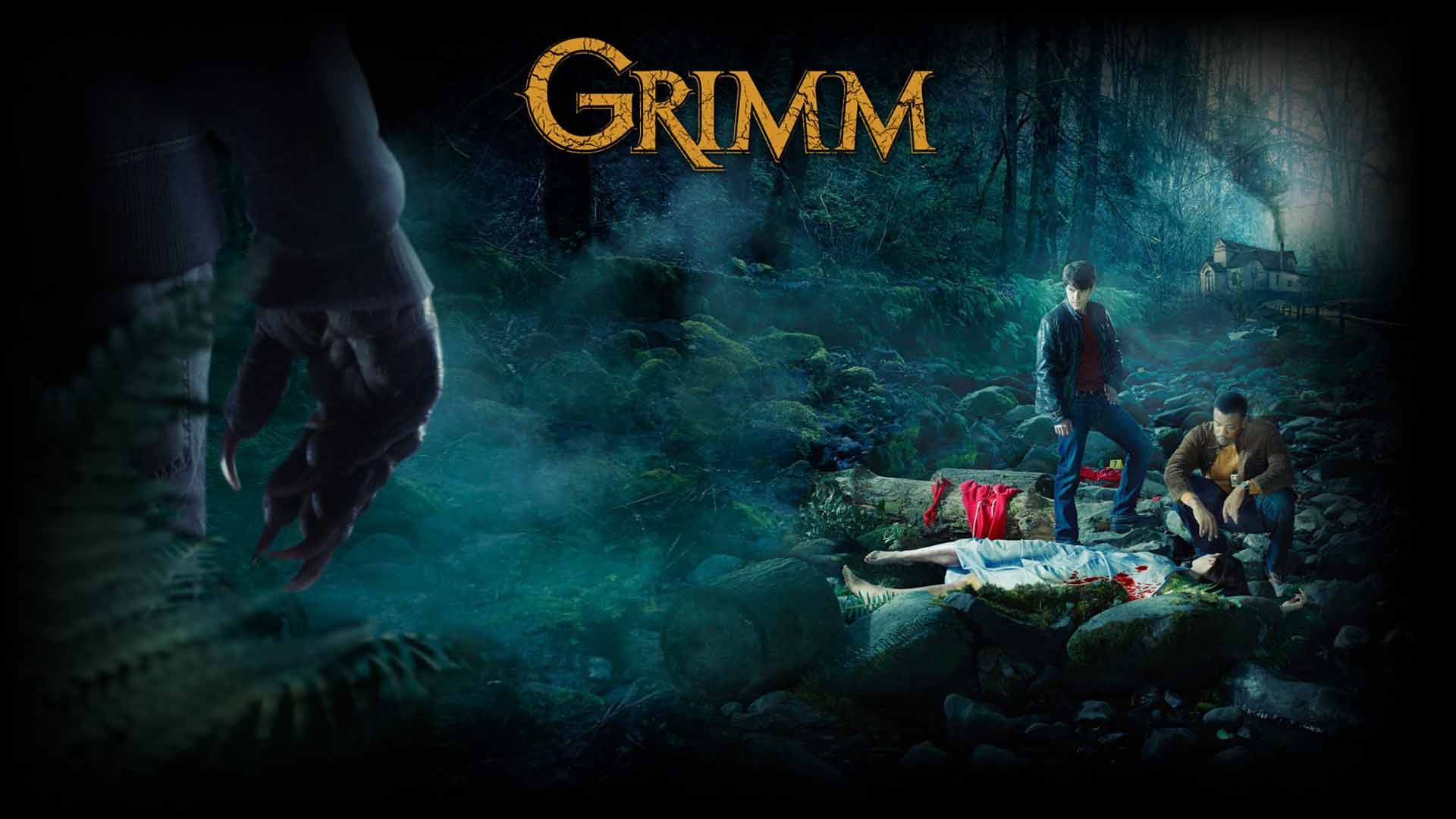
The Grimm Legacy: Bridging Two Worlds
Nick, portrayed by David Giuntoli, navigates his newfound identity with the help of his partner, Hank Griffin (Russell Hornsby), and Wesen friends Monroe (Silas Weir Mitchell) and Rosalee Calvert (Bree Turner). The show excels in how it incorporates folklore into the modern setting, with each episode drawing from a different tale or myth, reimagined as a police case. This approach allows “Grimm” to explore various cultural myths, bringing them to life in a contemporary context and making the series a rich tapestry of storytelling traditions from around the world.
Character Development and Wesen Society
One of “Grimm”‘s strengths is its character development, particularly in how Nick’s relationships evolve with those around him, both human and Wesen. The series portrays Wesen society with intricacy and detail, exploring its customs, politics, and the challenges Wesen face in hiding their true selves from humanity. Monroe and Rosalee, as Wesen who choose to live peacefully among humans, provide insight into the struggles and discrimination Wesen experience, enriching the show’s narrative with themes of tolerance, identity, and acceptance.
The dynamic between Nick and Monroe, in particular, highlights the series’ exploration of friendship and trust across cultural and species divides. Their bond, based on mutual respect and understanding, serves as a microcosm of the show’s broader message about overcoming prejudice and finding common ground.
The Impact of “Grimm”
“Grimm” has left a lasting impact on the supernatural genre, praised for its innovative blending of myth and crime drama, its deep world-building, and its thoughtful exploration of themes such as duty, heritage, and the nature of humanity. The series has cultivated a dedicated fan base, drawn to its unique premise, compelling characters, and the way it brings fairy tales to life with a modern twist.
Beyond entertainment, “Grimm” has contributed to a renewed interest in folklore and fairy tales, demonstrating their continued relevance and the power of stories to illuminate the human condition. The show’s success lies in its ability to entertain while also engaging with deeper questions about what it means to be a hero in a world where the lines between myth and reality are constantly blurred.
Legacy and Influence
As “Grimm” concluded its run, it did so leaving behind a legacy of creativity and innovation in storytelling. By weaving together elements of different genres and cultures, it has expanded the boundaries of supernatural television, offering a fresh perspective on age-old tales. Its blend of action, drama, and mythological intrigue has set a benchmark for how traditional stories can be reinterpreted for contemporary audiences, ensuring that the tales of the Grimm will continue to be told for generations to come.
7. Chilling Adventures of Sabrina: A Dark Reimagining of a Beloved Witch
“Chilling Adventures of Sabrina” revitalizes the story of Sabrina Spellman for a new era, diving deep into the occult while exploring themes of empowerment, identity, and the struggle between light and darkness. This Netflix series, based on the Archie comic of the same name, presents a grittier, more complex world than previous adaptations, set in the eerie town of Greendale, where witchcraft and mortal realms intersect.
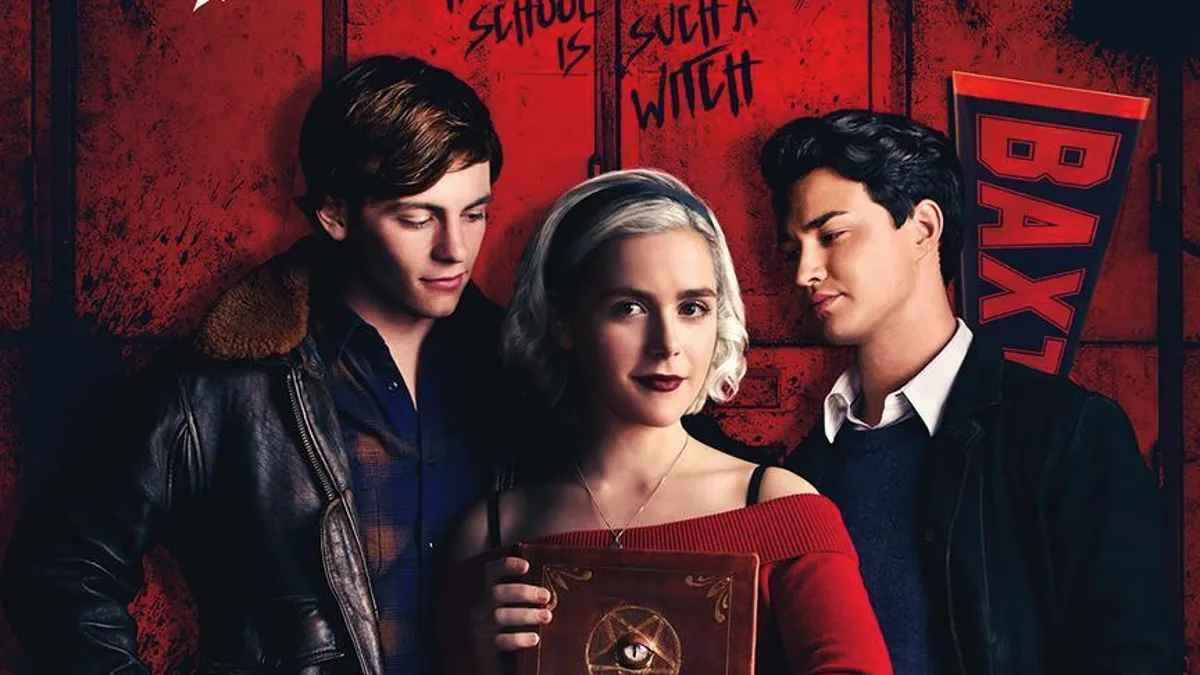
The Spellman Saga: Witchcraft and Adolescence
At the center of the narrative is Sabrina Spellman, portrayed with tenacity and charm by Kiernan Shipka. As a half-witch, half-mortal, Sabrina stands at the crossroads of two worlds, wrestling with her dual identity while confronting the dark forces that threaten her and the ones she loves. The series seamlessly blends elements of horror, drama, and coming-of-age storylines, offering a multifaceted look at Sabrina’s journey into witchhood and adulthood.
“Chilling Adventures of Sabrina” is commendable for its bold storytelling and visual style. The show embraces its darker themes—witch trials, satanic pacts, and eldritch terrors—while maintaining a sense of humor and a heart, largely through Sabrina’s unwavering determination to protect her family and friends. This balance of horror and humanity sets the series apart, making it a captivating watch.
A Rich Tapestry of Characters and Themes
Supporting characters, including the Spellman matriarchs Zelda and Hilda, played by Miranda Otto and Lucy Davis, respectively, add depth to the narrative, representing the spectrum of witch society’s traditionalism and compassion. Ambrose Spellman, Sabrina’s pansexual warlock cousin portrayed by Chance Perdomo, provides another layer of complexity, offering insights into the constraints of magical laws and the longing for freedom.
The series does not shy away from exploring weighty themes such as feminism, individual autonomy, and the nature of evil. Sabrina’s defiance against the patriarchal structure of the Church of Night reflects broader conversations about power dynamics and gender equality. Additionally, the show delves into issues of identity, loyalty, and the consequences of our choices, resonating with a wide audience and prompting thoughtful reflection.
Legacy and Impact
“Chilling Adventures of Sabrina” has made a significant impact on the landscape of supernatural television. Its willingness to tackle complex themes within a fantastical framework has endeared it to viewers seeking more than mere escapism. The show’s blend of horror, mythology, and social commentary has sparked discussions and garnered a dedicated following, attesting to its cultural relevance.
8. Riverdale: A Dark Twist on the Classic Archie Comics
“Riverdale” reimagines the iconic characters of Archie Comics in a dark, mysterious, and often twisted narrative that has captivated audiences since its debut. Set in the seemingly idyllic town of Riverdale, the series quickly reveals a much more sinister underbelly, weaving together elements of crime, mystery, and the supernatural. This CW series has pushed the boundaries of the teen drama genre, blending it with elements of noir, horror, and a palpable sense of the uncanny.
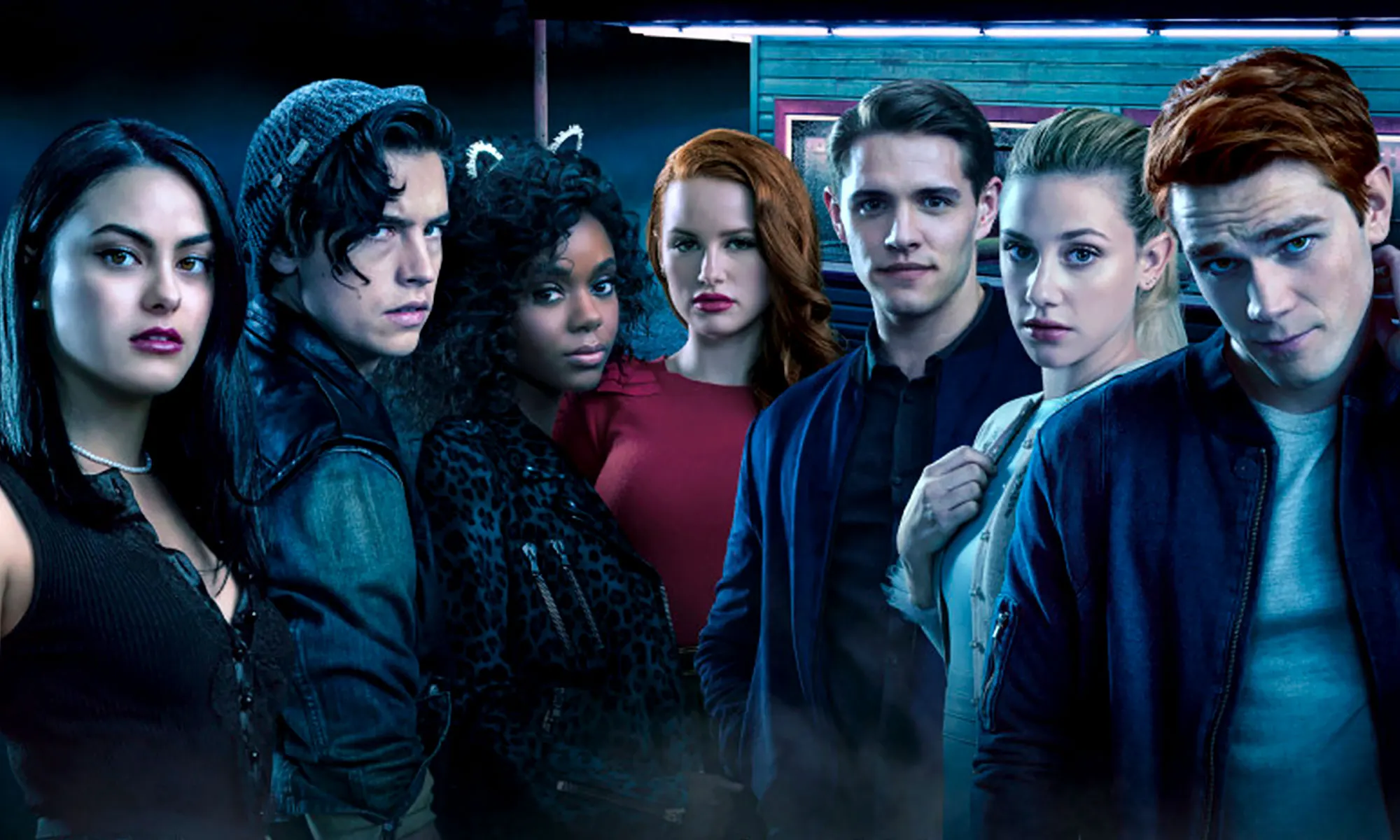
Unraveling the Darkness Beneath the Surface
At the outset, “Riverdale” introduces us to Archie Andrews, Betty Cooper, Veronica Lodge, and Jughead Jones as they navigate the complexities of high school life. However, the sudden death of a classmate unravels a series of mysteries and secrets that lie at the heart of the town, implicating families, friends, and the very fabric of Riverdale itself.
The series stands out for its bold reinterpretation of the beloved comic characters, infusing them with depth, darkness, and complexity. Archie, played by KJ Apa, is no longer just the all-American boy next door but a young man grappling with his desires, loyalties, and moral choices. Betty (Lili Reinhart) and Veronica (Camila Mendes) evolve from their comic book archetypes into fully realized characters with their own strengths, flaws, and battles.
The Supernatural and the Surreal
While “Riverdale” is not a supernatural show in the traditional sense, it frequently flirts with elements of the genre. The series explores themes of cults, mysterious rituals, and unexplained phenomena, adding layers of intrigue and suspense. The town of Riverdale itself, with its Lynchian atmosphere, acts as a character in its own right—timeless, haunting, and filled with secrets waiting to be uncovered.
A Stylish Noir Aesthetic
“Riverdale” is visually striking, employing a rich color palette, shadowy lighting, and stylized cinematography that pays homage to classic film noir. This aesthetic complements the show’s themes of mystery and moral ambiguity, enveloping viewers in its moody, suspenseful world. The series’ attention to visual storytelling, from the iconic Pop’s Chock’lit Shoppe to the foreboding Thornhill mansion, enhances the overall experience, making “Riverdale” a feast for the eyes as well as the mind.
Impact and Legacy
“Riverdale” has left an indelible mark on pop culture, redefining expectations for adaptations of comic book properties. The show’s success has spurred a renewed interest in Archie Comics, introducing these classic characters to a new generation while offering a fresh perspective for longtime fans.
As “Riverdale” continues to evolve, its blend of teen drama, mystery, and supernatural elements ensures that the town’s dark secrets and the stories of its inhabitants will keep audiences enthralled for years to come.
9. Mayfair Witches: Delving into the Depths of Magic and Family Legacy
“Mayfair Witches,” based on the novels by Anne Rice, is one of the latest additions to the supernatural genre, quickly captivating audiences with its rich narrative tapestry. This series explores the intricate lives of the Mayfair family, a dynasty of witches with a powerful legacy and a complicated relationship with a mysterious entity known as Lasher. Set against the atmospheric backdrop of New Orleans, the show delves into themes of power, destiny, and the bonds that tie us to our past.
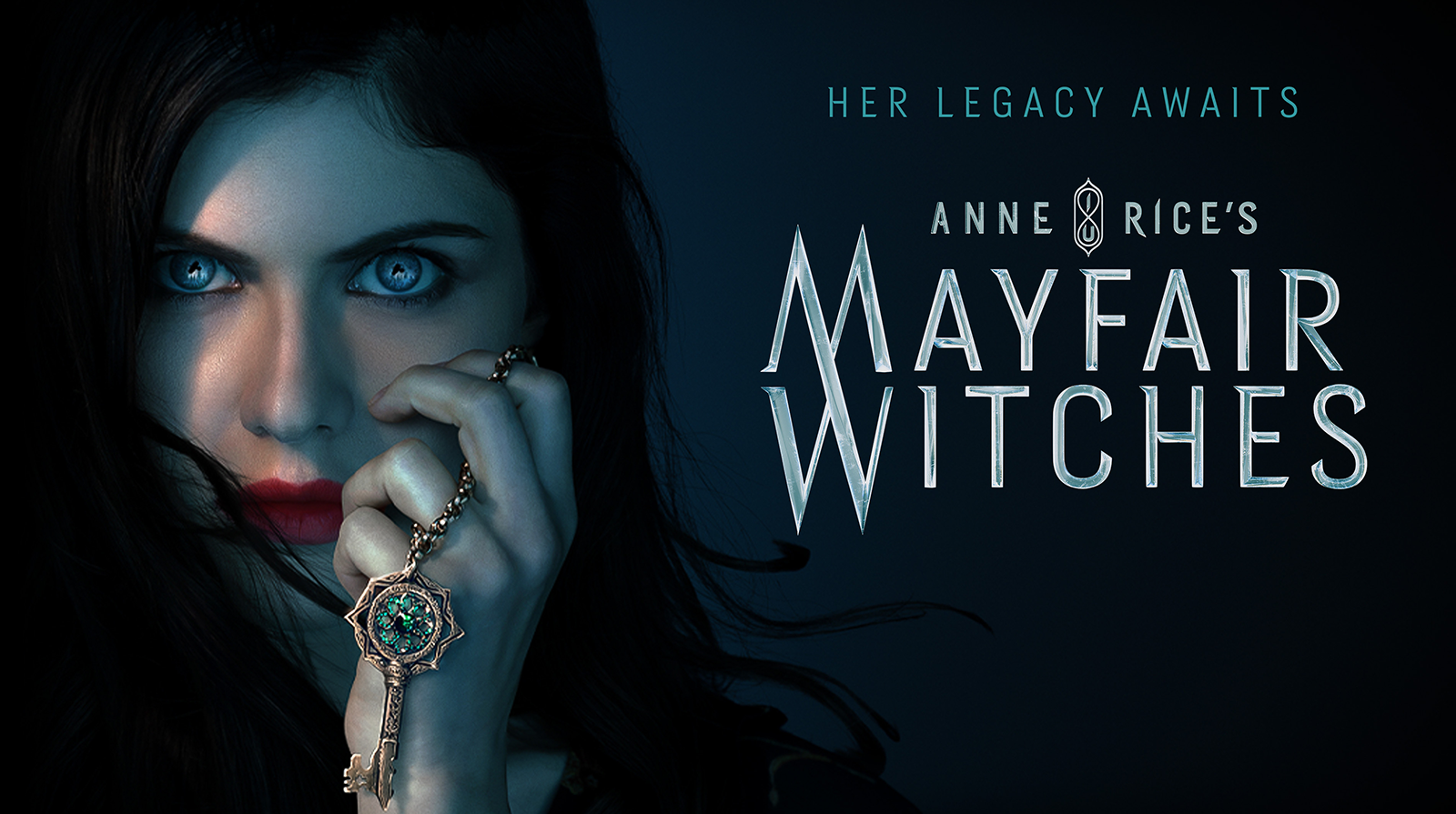
The Enigmatic World of the Mayfairs
At the heart of “Mayfair Witches” is Rowan Mayfair, a brilliant neurosurgeon who discovers her true heritage and her inherent powers as a witch. This revelation thrusts her into a world of magic, danger, and dark family secrets. As Rowan grapples with her new identity, she must navigate the complexities of her family’s legacy and the ominous presence of Lasher, whose intentions and origins are deeply entwined with the Mayfairs’ fate.
Magic, Morality, and the Quest for Power
“Mayfair Witches” delves deep into the moral and ethical questions surrounding the use of power. The series examines the consequences of wielding magic, not only on the individual but also on the wider world. Through Rowan’s journey, the show poses challenging questions about free will, responsibility, and the price of ambition, engaging viewers in a philosophical exploration that goes beyond the surface-level thrills of the supernatural.
The relationship between the Mayfairs and Lasher serves as a central mystery, driving the narrative forward. This enigmatic figure, both alluring and dangerous, represents the dual nature of power itself—capable of great protection but also immense destruction. The unfolding drama of this relationship keeps viewers on the edge of their seats, eager to uncover the truth behind Lasher’s intentions and his bond with the Mayfair witches.
A Visual and Atmospheric Feast
Set in New Orleans, “Mayfair Witches” benefits greatly from its setting, with the city’s rich cultural heritage, Gothic architecture, and vibrant history providing the perfect backdrop for a story of magic and mystery. The show’s creators have masterfully captured the essence of New Orleans, from its hauntingly beautiful cemeteries to the opulent mansions of the Garden District, enveloping the narrative in an atmosphere that is both mesmerizing and eerie.
Legacy and Impact
“Mayfair Witches” stands as a worthy adaptation of Anne Rice’s beloved novels, capturing the essence of the original works while also expanding upon their themes and characters. The series has introduced the intricate world of the Mayfairs to a new audience, while also satisfying long-time fans of Rice’s books.
With its compelling narrative, complex characters, and thought-provoking themes, “Mayfair Witches” contributes significantly to the supernatural genre, offering a story that is both entertaining and meaningful. As the series continues to unfold, it promises to further explore the depths of its magical world, ensuring its place among the notable supernatural tales of our time.
10. Teen Wolf: A Modern Take on the Werewolf Legend
“Teen Wolf,” a series that redefined the werewolf legend for a new generation, blends supernatural elements with the trials of adolescence, creating a compelling narrative that resonates with viewers. The show, which debuted in 2011, centers around Scott McCall, a high school student whose life is transformed after being bitten by a werewolf. This event thrusts Scott into a world filled with danger and mystery, where he must navigate his new identity while protecting those he loves.
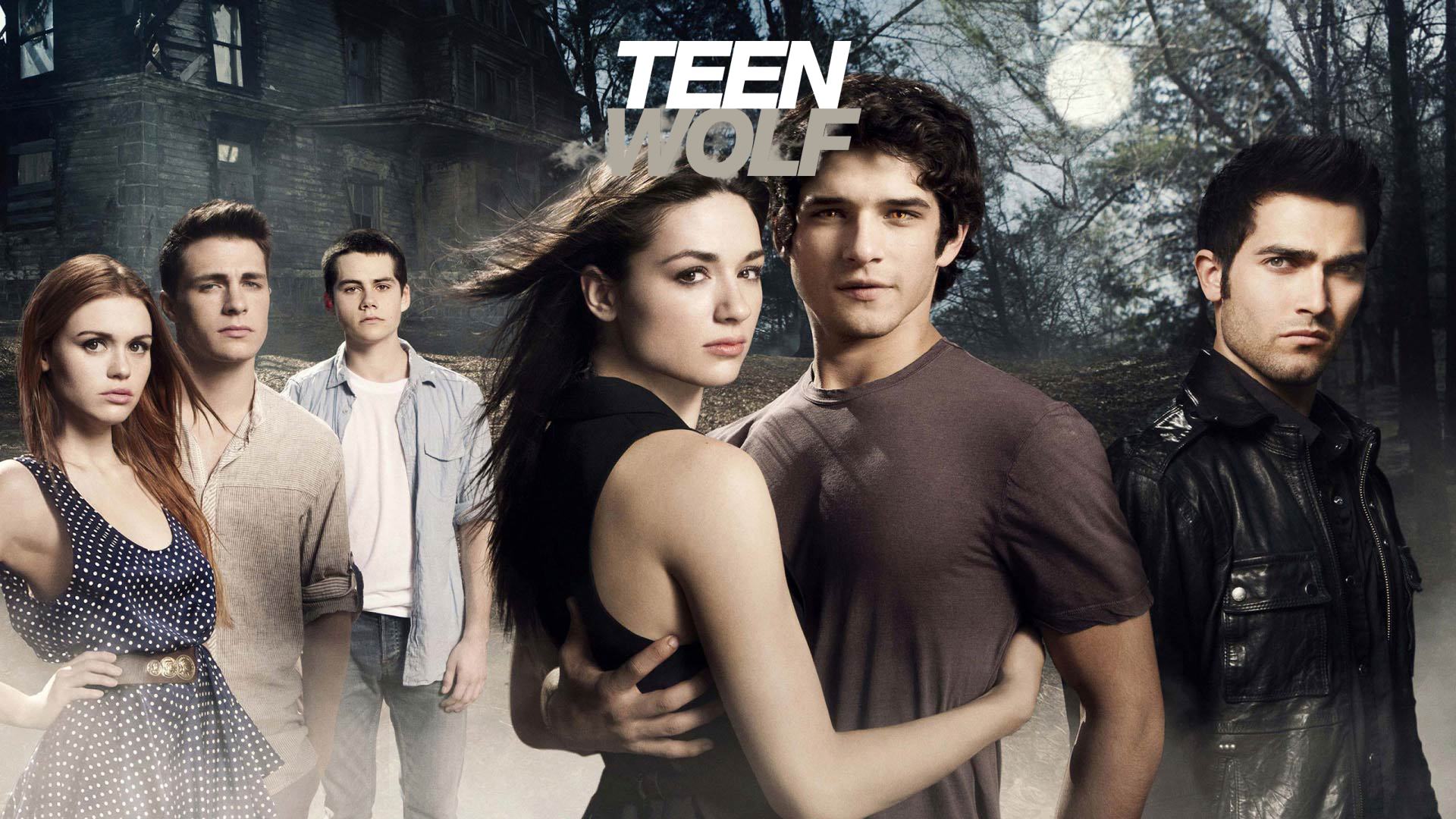
The Evolution of Scott McCall
At the heart of “Teen Wolf” is the evolution of Scott, portrayed by Tyler Posey, from an ordinary teenager to a true alpha werewolf. This transformation is not just physical but also moral and emotional. Scott’s journey is one of self-discovery, leadership, and the exploration of what it means to be human. The series excels in depicting his struggles with his dual nature, highlighting the themes of control, power, and the importance of human connections.
Scott’s relationships with his best friend Stiles, his mentor Derek Hale, and his love interests, including Allison Argent, form the emotional core of the series. These relationships are tested by the supernatural challenges they face, providing depth to the narrative and offering a nuanced look at the bonds that define us.
A Rich Supernatural Tapestry
“Teen Wolf” expands its universe beyond werewolves to include a host of other supernatural beings, from banshees and kitsunes to werecoyotes and nogitsunes. This diversity enriches the show’s mythology, introducing viewers to a wide array of legends and folklore. The series skillfully integrates these elements into its plot, using the supernatural as a metaphor for the real-life challenges of growing up and finding one’s place in the world.
The town of Beacon Hills, where the series is set, becomes a character in its own right, a nexus of supernatural activity that draws in friends and foes alike. The history of Beacon Hills, and the secrets it holds, plays a crucial role in the narrative, adding layers of intrigue and mystery.
Legacy and Cultural Impact
“Teen Wolf” has left a lasting impact on the supernatural genre, lauded for its character development, storytelling, and innovative approach to classic myths. The series has garnered a dedicated fan base, drawn to its blend of action, drama, and supernatural intrigue.
Beyond its entertainment value, “Teen Wolf” has sparked discussions about diversity, representation, and the power of storytelling to address complex issues. The show’s portrayal of strong, multidimensional characters and its exploration of themes relevant to its audience have cemented its place in popular culture.
As “Teen Wolf” continues to attract new viewers, its legacy as a series that reimagined the werewolf legend for the 21st century is secure. Its blend of supernatural elements with the universal experiences of growing up ensures that it will be remembered as a landmark series in the genre.


